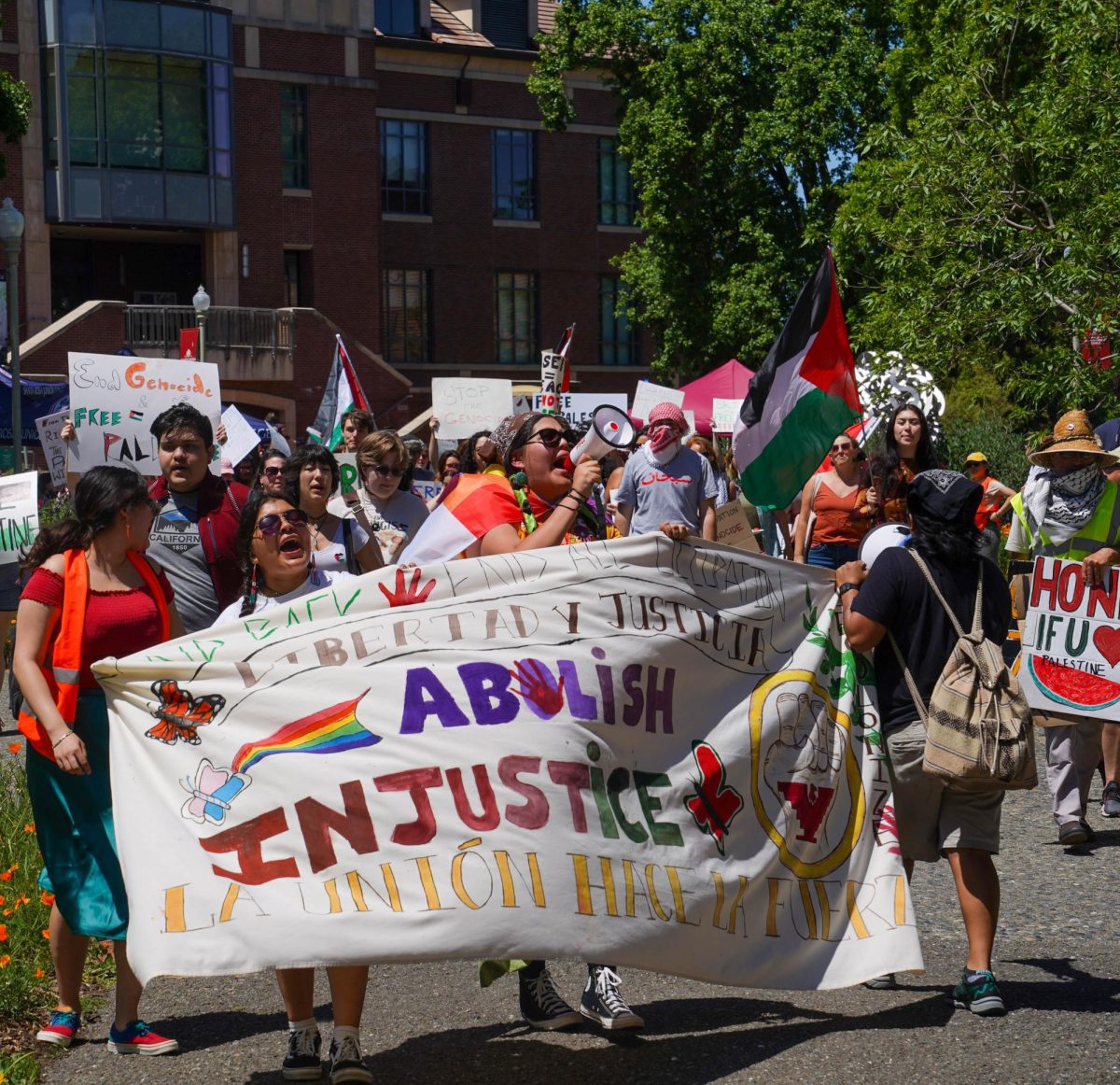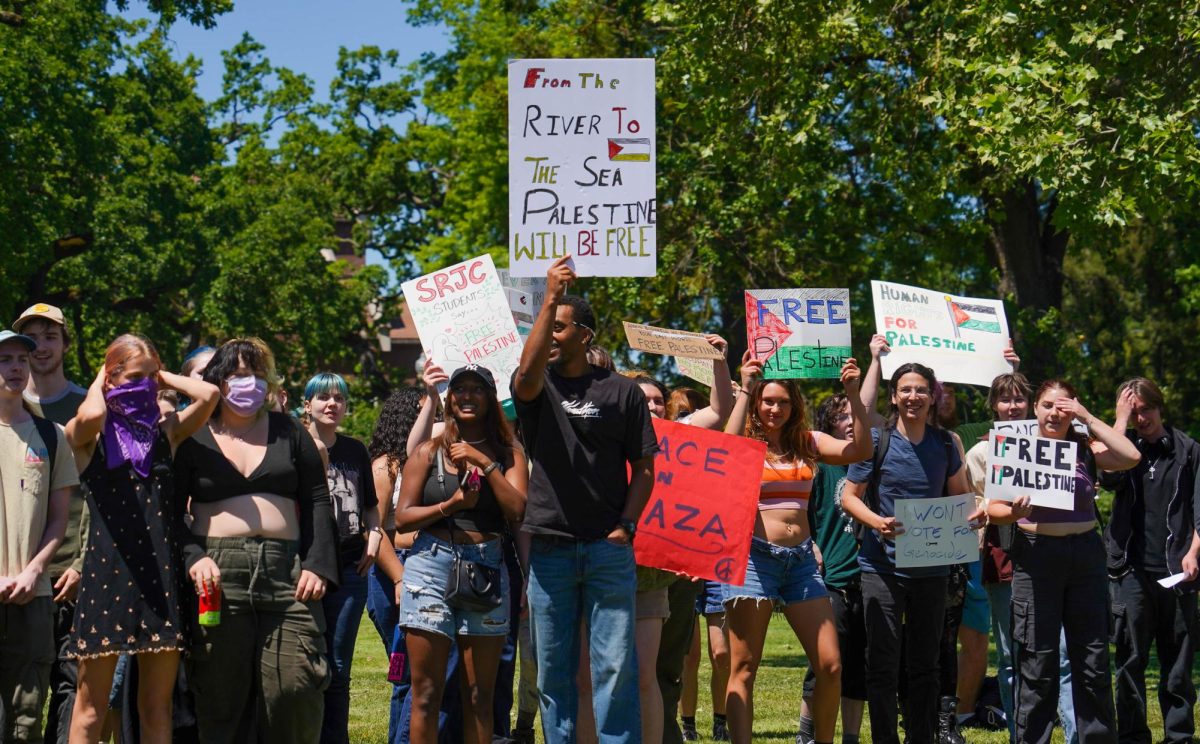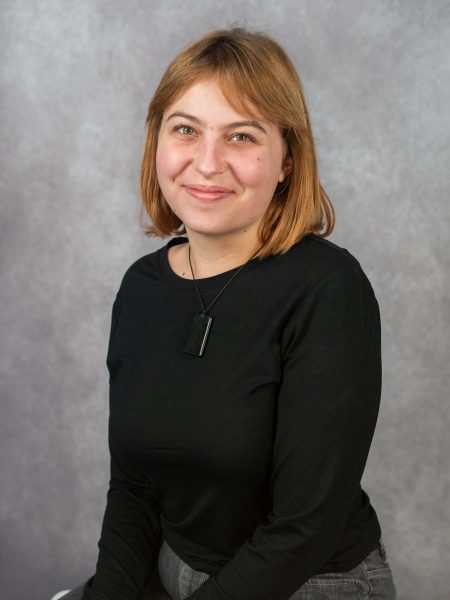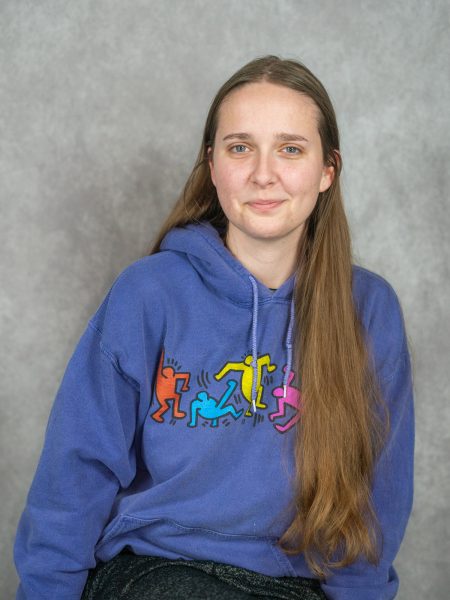Santa Rosa Junior College community members took part in a demonstration calling for a ceasefire in Gaza, Thursday afternoon in the Bertolini Quad at the Santa Rosa campus.
SRJC’s Middle Eastern and North African Association (MENAA) organized the demonstration. Over 100 SRJC students, faculty and community members attended the student-ran event, which remained peaceful throughout.
MENAA organizers offered various interactive activities at the event, including a henna booth, sign-making stations and a brief drum circle. The demonstration lasted from 11:30 a.m. to 2:30 p.m. During this time protestors listened to speakers and then marched across campus to the front lawn near Mendocino Avenue, while holding protest signs against the war in Gaza.
SRJC President Dr. Angélica Garcia attended the event and showed her support for the student organizers. “I love seeing students engaging in their learning and in their leadership capacity and helping to create this space,” she said.
MENAA also organized an information booth which provided facts about the event and answered attendees’ questions. Other MENAA members dawned orange vests and served as safety officers for the demonstration. They provided sunscreen and ensured all attendees were hydrated as well.
The announcer, Alya Owaidat, introduced the first speaker, Julien Ducarroz, ICC representative for MENAA. Ducarroz gave statistics on the death toll in Gaza and called for the U.S. to stop sending weapons to Israel.
The next speaker, Rami Nacuozi, gave an emotional speech detailing his experience visiting Lebanon, where many of his family members live.
Camille Elizabeth followed Nacouzi. Elizabeth, a third-generation Jewish American, spoke about her birthright trip to Israel 12 years ago. She said the constant military presence she experienced during her trip made her feel like the point of it was for propaganda, as if it were a rehearsed presentation.
Dr. Erica Tom, the former director of Native American studies at Sonoma State University, shared quotes from Noam Chomsky, which compared the damages of the Holocaust to the damage done to Gaza in the last few months.
Sierra Riak, the secretary of MENAA, spoke next. She talked about her connection to her Jewish heritage and her duty to serve as a community leader, a role similar to one her great-grandfather had in Baghdad.
Donya Hinawi was the last to speak. Like Riak and Nacuozi, Hinawi and her family are from the Middle East. As a Palestinian woman herself, she spoke about her fear for the future of those affected by the war in the Gaza Strip.
The overall sentiment shared by speakers was one of outrage at the U.S. government for providing weapons to Israel, with hope that their message would be heard and for a ceasefire to stop the Gazan deaths.. At the end of his speech, Nacuozi called for government leaders to take action. “Representative Mike Thompson, shame on you! Senator Alex Padilla, shame on you! President Joe Biden, shame on you!” he said.
After the speeches, Owaidat announced the beginning of the march out to the SRJC sign on Mendocino Avenue.
As they marched, leaders led the crowd in various chants. When the group reached the SRJC sign on the front lawn, some passing cars on Mendocino Avenue honked in support of the cause. A few passersby also stopped their walk down the street to join in on the protest.
“I’ve been to a few [other protests] in San Francisco and I just felt — it just felt right to just stop. I’m enjoying this especially because it’s for my school and stuff. I just wanted to take the opportunity and help in any way,” said John Cline, an SRJC student that had come upon the protest while leaving campus and joined in.
Faculty members and administrators were also present and showed their support for the cause.
Dr. Garcia touched on police presence and retaliation at other campuses across the country. She said that if a protest starts as a peaceful event and ends in police violence “it’s tragic. It’s sad,” she said.
Daniela Kingwell, English for multilingual students instructor, wasn’t surprised. “Shockingly not shocking. Our country is a really militarized, violent place,” she said.
English instructor Michael Hale commented on the fear of retaliation by administrators and police. “The people that are here are all tenured,” he said. “So there’s division among faculty. And people that are on a tenure track, the people that are tenured have much more job security. So, generally speaking, there’s a little bit less fear of using your prower of free speech, but across the country, I mean, the economics chair[men] at Emery [University] got slammed to the ground.”
Hale said events like this bring him hope for the future. “Young people are waking up and participating and trying to build a more beautiful world.”







